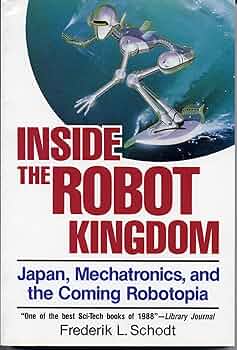
Eyck Freymann: How to Break China’s Minerals Chokehold
Why the allies need a multilateral commercial stockpile This essay is based on a Hoover History Lab working paper, co-authored with Joshua Stinson, William Norris,…
Thought Leader: Eyck Freymann
10) To get the health benefits of red wine, you have to drink enough to kill yourself.
At the end of his talk, Norfolk Forum President Chuck McPhillips facilitated a Q&A with Gupta. One of the last questions pertained to the health benefits of red wine.
“I’ve got no problem with a little bit of red wine. But I will tell you that these studies that look at the components of red wine that are beneficial for you… in order to get the legitimate benefits of resveratrol for example, you have to drink between 50 and 100 hundred glasses a day… I saw a couple hands go up.”
That’s very bad news for many of us. There was, however, a glimmer of hope.
“A glass or two of alcohol is probably not detrimental. it might even be associated with longevity.”
Take that squares! We’re gonna live forever!
9) Working out your upper body can prevent pneumonia/If your son is a doctor, you’ll have to exercise when you’re old.
“I encourage my own parents to do a lot of upper body exercises… Upper body can not only make your posture better, [and] increase muscle mass, but it also decreases the likelihood that you could develop pneumonia… one of the biggest reasons people end up in nursing homes, and one of the biggest reasons they don’t leave those nursing homes.”
8) Genetically Modified Foods are maybe OK? Also #Firstworldproblems.
“There’s still a lot of data that still needs to be collected about this. I mean people look at this and they immediately say ‘well this is unnatural, these are frankenfoods’… I think some of that may be true and this concern that they may be introducing new pathogens for example, into our diets, [could be true]…
We don’t have to worry about these things in places like the United States because again, we live in a world of abundance, the land of plenty, but there are countries around the world where they can’t get enough protein sources to feed the people and the idea of being able to create food faster and in more supplies may be a real benefit, so we don’t know yet, the true impact.”
7) Want to live longer? Go find your own Icky Guy.
Actually it’s “Ikigai” – a Japanese term that means essentially a “reason for being.”
“[In Japan] when I’d ask people, who were over 100 years old , why do you think you’ve lived so long? They couldn’t really point to anything in particular… but one of the things that they did talk about was something they called Ikigai… this idea that you wake up every morning knowing why you’re here, what your purpose in life is, and how you’re better today that you were yesterday… When we figure that out, a lot of the other things tend to fall into place. We start to want to take better care of ourselves. we start to want to be around peple that we love.”
6) Most of what Medicine knows about marijuana is flawed.
“I realized that most of the studies around medical marijuana in the united states that were getting funded were designed to look at the harm of medical marijuana and not most of the benefits. In fact 94 percent of the studies over a 14 year period, that were federally funded, were looking at harm versus benefit.”
He went on to endorse medical marijuana, which he had previously been opposed to.
“When I started looing at patients who I’d previously dismissed as malingerers who were just trying to get high, I started to see a different picture emerge. I started to see that for certain condition, out there, not only was medicinal marijuana potentially beneficial Sometimes it was the only thing that was beneficial…
there are people who abuse this, but the trade-off is that there are people who could benefit from it as well and aren’t getting benefits any other way. Are you willing to deny those people treatment because of the concern about abuse? I didn’t think that that was morally acceptable. If that was my kid, and my kid were having epilepsy that could not be treated any other way, I would want them to have whatever options they could potentially have… For me the decision was pretty clear – you’ve got to make these things available for the people that need them the most.”
5) Vaccines are the best.
“We talk about healthcare and we talk about the trillions of dollars that it costs. If we can’t do the stuff to prevent some of these diseases in the first place – [among other things] vaccines, I think it’s going to be very hard to win the battle of healthcare. Vaccines are one of the greatest public health advancements we’ve had over the last 100 years… Vaccines probably have saved millions of lives in the united states, and hundreds of millions worldwide. there are some unfounded fears that have subsequently been debunked.”
4) When you’re hungry, you’re probably thirsty. Idiot.
“Something that I find is quite simple is first of all this idea that our brains are not particularly good at distinguishing thirst and hunger… So many times we think that we’re actually hungry, and the fact is we’re thirsty. If you live in a country that has lots of resources, when you get that twang in your brain, you reach for food instead of water. And as a result we walk around a country chronically dehydrated and overstuffed.”
3) Gunfire isn’t as dramatic as in the movies.
“I’ve learned a lot of things along the way… I’ve learned that gunfire is really not as dramatic in real life- as Hollywood makes it out to be. The first time someone took a shot at me, I didn’t even know what was happening.”
Way to be aware of your surroundings, doc.
2) We eat almost as much sugar as we weigh.
Gupta explained that in the ’70s, we started cutting fat out of our diets to be healthier. Since then:
“Cardiac disease remains the biggest killer of men and women alike, child obesity rates have continued to go up, it is predicted that half this country will be diabetic or pre-diabetic by the year 2020… We eat more sugar now than we ever have before. sugar, high fructose corn syrup, all these sorts of things have more of an impact on our body than we even realize because the human body simply wasn’t designed to be able to eat like that.“
Fact: The average American eats 140 pounds of sugar a year.
Fact: According to a Pew study, the average American weighs 159 pounds.
1) America’s healthcare system is absurd.
“I think we’ll look back 100 years from now at the state of our country and say ‘so let me get this straight: You guys did so many wonderful things in the world of health and learned how to save so many lives and do so many things you didn’t think possible, but then you didn’t help the people who need it the most?’ That’s not going to make sense to anybody…
There are people who live at the rung of our society that are living near the poverty line, where, you know, they have to feed a family of five with 20 bucks every single night, otherwise they’re not going to make ends meet. And I think anything that can be done to ensure that they are not denied healthcare is really important.”
Eyck Freymann: How to Break China’s Minerals Chokehold
Why the allies need a multilateral commercial stockpile This essay is based on a Hoover History Lab working paper, co-authored with Joshua Stinson, William Norris,…
Thought Leader: Eyck Freymann
Chris Miller: Robotics Manufacturing: The Rise of Japan
“To the Americans, a robot is a computer attached to a mechanism. To Japanese, a robot is a mechanism attached to a computer.” The future…
Thought Leader: Chris Miller
Dr. Sanjay Gupta: A New Understanding of Parkinson’s Disease
Parkinson’s disease, a progressive movement disorder whose hallmark is damage to the dopamine-producing neurons in the brain, afflicts almost 12 million people worldwide. And the…
Thought Leader: Sanjay Gupta

